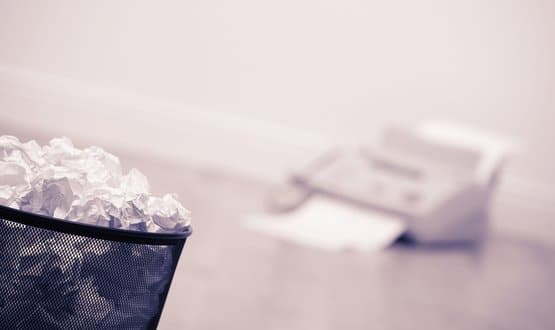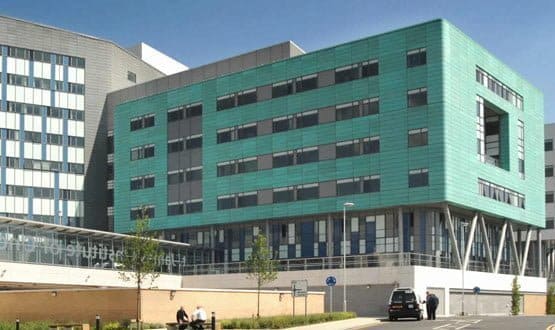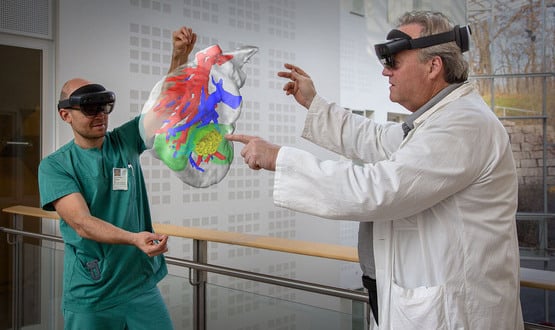Leeds Teaching Hospitals pledges to ‘axe the fax’ by 1 January
- 19 September 2018

Leeds Teaching Hospital NHS Trust has pledged to bin over 300 of its fax machines before the new year in a bid to oust outdated tech from its wards.
Under a campaign monikered ‘Axe the Fax’, the trust has said it will remove 95% of some 320 remaining fax machines by 1 January 2019, after recently bidding farewell to 20 of them.
The trust is currently mapping fax machines within the organisation to see how they could be replaced in favour of modern processes, such as scan-to-email.
Staff at Leeds Teaching Hospitals have been given the opportunity to identify “defunct” fax machines to programme managers, who will remove them if deemed safe to do so.
The campaign follows a study by the Royal College of Surgeons of England that revealed that there are some 9,000 fax machines still in use across the NHS.
Richard Corbridge, CIO of Leeds Teaching Hospitals, likened the trust’s reliance on the archaic tech to “living in the dark ages”.
Corbridge said: “The use of nhs.net is far more secure and safe than the use of faxes. We are aiming to help services safely decommission their faxes and move to email in the first instance and take it from there.”
One area identified as a priority for staff is bedboard, where wards currently send paper requests for admissions to be logged onto the PAS via an internal fax to the team.
Rather than move this to an email system, the trust plans to remove the process altogether.
Chief clinical information officer Andy Webster said: “As a clinician the major concern I have with fax is has it been sent to the right machine, been read by the right person, and [have] appropriate actions been taken.
“That is why we are in the process of developing a modern auditable referral system that is embedded within our electronic health record.”
Managed print service (MPS) devices continue to be rolled out across Leeds Teaching Hospitals, which allow communications to be sent electronically rather than via fax.
Said devices can identify “hotspots” of activity and will enable the trust to identify where to focus the next phase of the programme. This phase which will move communications to “a scan-to-email only stance”, and potentially remove the option to fax from the MPS devices altogether.
Matt Hancock labelled the NHS’s reliance on outdated IT as “downright dangerous” in his keynote speech at the Health and Care Innovation Expo earlier this month.
A report by security researchers at Check Point Software in August revealed that hackers could exploit weaknesses in fax machines to infect hospital IT systems with malware.
“We don’t underestimate the enormity of the challenge to remove all the machines in such a short time frame, but we simply cannot afford to continue living in the dark ages,” said Corbridge.
“The campaign aims to empower staff rather than disarm them and so far the feedback has been positive. Staff are recognising that on the one hand we have hugely innovative technology being implemented in the trust and on the other, we have technology that hasn’t existed for decades in other industries.”





2 Comments
I also think some of the NHS’ contractors would do well to follow this action – the faxes I was using in an organisation that made colostomy bags meant the processes were inefficient and wasteful! Sadly I was only there as a contractor for a couple of weeks and had no influence to make changes.
“As a clinician the major concern I have with fax is has it been sent to the right machine, been read by the right person, and [have] appropriate actions been taken.” I have the same concern about our discharge letters sent via electronic messaging system to GPs as there is no sent-received-read receipt.
Fax machines are taking the blame unfairly for a system wide failure to allow sensible use electronic messaging systems effectively. Fax + copper telephone-line saved many lives, don’t let them die a unsung heroes. Save a few of them for business continuity when computer networks are down.
The dark age was extended because security experts have been misguidedly blocking modern means of communications such as nhs.uk emails over the last 15 years and insisting that nhs.net email is the only safe email system. This may well be true, but nhs.uk email is safer than fax. Are we going to give all our patients an nhs.net email address as well?
Despite billions being sent on NHS IT, there is still no universal NHS electronic messaging system for bi-directional transmission of patient related communications. NHSmail, e-referrals, local document management systems such as Docman, lab-messaging system such as Keystone are all patchy and cumbersome.
Money spent on regional connected health records, e-referrals and summary care records need to be diverted to a secure electronic postal system for healthcare linking EPRs in patient-context with acknowledgment of read-receipt. This maybe more expensive than the current 2nd class post & electronic fax, but it will be worth the billion spent on it.
Comments are closed.